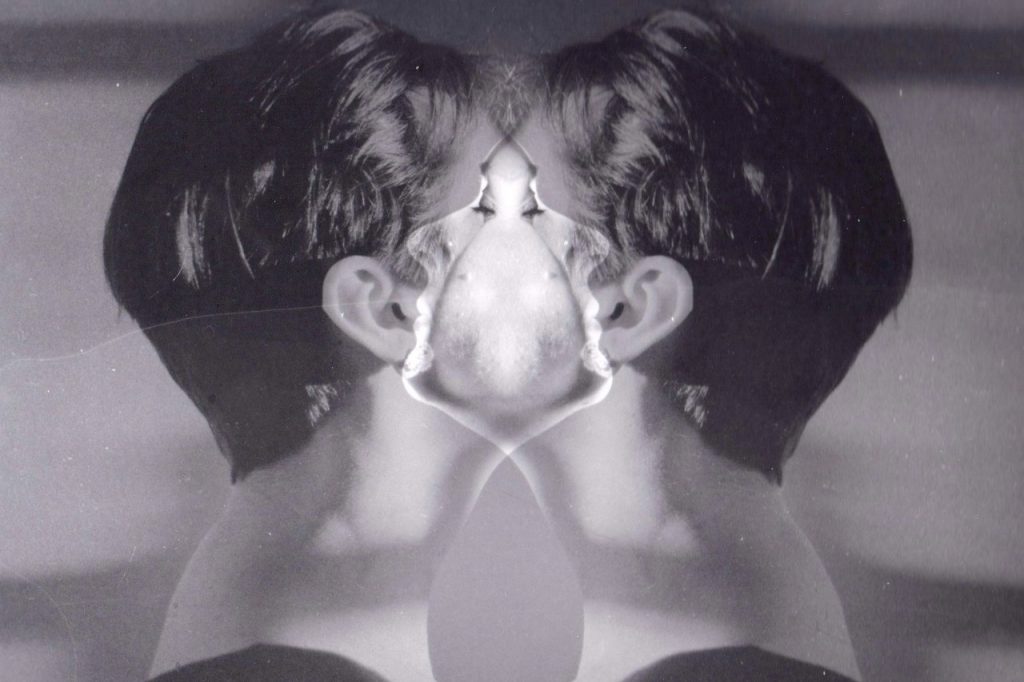I recently finished writing my third novel – my ‘suicide book’, as I call it. Parallel Hell explores the world and online life of Franny, a woman obsessed with suicide. This obsession is triggered by a death in the family, though nothing is spelled out; Franny gets a call from her sister in Aotearoa/New Zealand, where Franny grew up. The narrative is cryptic, gradually coming into oblique focus.
The first half of the book is set in London, a year after the 2016 EU referendum; the second half is set in Wellington, during the debates over a 2019 assisted dying bill. Parallel Hell is a fragmentary, atomised puzzle of short stories, keyword searches, and encounters. It is about suicide and suicide ideation, life stories and storytelling; and it is about the possibility of hope, depending on how you read it.
Part of my writing method was to provoke (or place myself in) real-life situations, in order to create EVENTs that I fictionalised. This could involve method acting and research, combined – the boundaries between myself and my main character were fluid. She is in fact (aside from the occasional TMI) quite a private character – in public; she and I have no secrets from each other, naturally. But the balance between what I might want to share with my potential readers and what she was willing to divulge required numerous, prolonged negotiations, involving ‘rational persuasion’, ‘emotional appeal’ and ‘direct pressure’: all techniques you might use in a crisis or hostage situation. While being a quite compatible ‘character-author’ couple, we were not always operating ‘as one’. I could not, for example, always trust her not to assert herself in public and ‘risk! Risk anything!’ (to quote Katherine Mansfield). This created some tension – which, although uncomfortable as a process, I’d say I was grateful for in the end.
Here is an EVENT, most of which happened, that took place in a second-hand bookshop in Wellington last May:
I [my character/she] went straight to the counter.
‘Have you got anything on suicide?’ I thought I’d ask, and then I [or she – she was the one I was always thinking of] could get a cup of tea somewhere. Rather than spend half an hour trying to scour the Psychology or Self-Help sections or whatever there was in here (picture piles of books on tables and floor-to-ceiling shelves).
The man led ‘her’ [or, rather, me] to the back of the shop. He said, ‘You might find something in that section, about how to help teenagers who are suicidal,’ he pointed over at the Parenting section, ‘and over here,’ he pointed at another nonfiction area, ‘you might find something about being near the end. But I’ll go and look on the system in the meantime.’
‘Oh, thanks.’ There is always something a bit awkward about asking for books on suicide – on sex, would be the same – but being polite can be a help. ‘I’m also interested [I added – and, therefore, so would ‘she’, later on] in fiction if you can think of anything. Fiction or nonfiction, anything at all.’
He went off.
A Parent’s Guide for Suicidal and Depressed Teens: a blue dot sticker on the cover, with the number 31 written on it. [Not anything I am interested in; I am not a parent and neither is my main character. But still.] I opened the book [as she would, too – she did, in fact, question the point of this ‘time-wasting activity’, as she saw it; but I pointed out to her that although I was interested in her, primarily, I also had potential readers to consider, and – aside from the necessity of ‘variation in tone’ – some of them would be parents of teenagers, or teenagers themselves perhaps, or people who were concerned about people other than themselves. So, we could at least pick up the Parent’s Guide. And I reminded her that, although her focus was tightly narrow (and rightly so), she was set on going to Parliament’s Public Gallery while we were in this country, to watch the debates around the euthanasia bill – an activity you could describe as ‘lacking in tunnel vision’. ‘Diversification,’ she said. ‘Variations on a theme.’]
I went back to the Parent’s Guide book in my hands [and in my character’s hands]:
In pencil on the first page was the number 10, and under that, ‘Babies’ – short for ‘Babies section’, perhaps.
‘Excuse me,’ I said to the petite beanie-wearing person [make her taller? Make her a man?] who was shelving nearby, ‘does this mean it’s ten dollars?’
‘That’s right.’
‘Oh, thanks.’ What did the 31 mean then? Oh well.
‘If you need any help, just ask.’
‘Thank you.’
Get the best of Moxy directly in your inbox.
Not With My Life I Don’t: Preventing Your Suicide And That Of Others – looked interesting (or, rather: overconfident) – by Dr. Howard Rosenthal who, as the blurb told her [or me, if you prefer – but later ‘her’]: ‘teaches you to say “no” to suicide and really mean it! Scientifically sound advice … in a lively, folksy manner (…) the most important book you’ll ever read? You bet it is!’ (I left it on the shelf.) Ah, there was Final Exit – two copies – and Lorraine Moir’s Breaking the Silence: New Zealanders Talk About Suicide. I had read them both already, but maybe I could be extravagant and get her [my character] her own copy of Humphry’s Final Exit. Were both copies the same price?
‘Are you okay?’ The beanie-wearer was back.
‘Yes, I am. Why do you ask?’ I slid the books back in their place – I’d already read Final Exit [true – and also true of my character] and, also, I [she, therefore] could get it out of the library again if I [or let’s just say ‘we’] needed it – although perhaps I wouldn’t be able to now that Wellington’s ‘earthquake-prone’ Central Library was closed.
‘Because [here’s the beanie wearer talking again] of what you are looking at. I thought I’d ask.’
‘Well, that’s kind of you.’ The ‘girl’ was possibly in her late twenties, although she looked like a teenager [my character would make the same observation – it helps when you’re both the same age]. ‘Yes, I’m OK.’ (In reference to the Australian R U OK™ suicide prevention campaign.) Although, speaking just for myself here, I was feeling a bit weirded out by this ‘useable’ dialogue.
‘Are you?’ The ‘Are you OK’ technique in action: where you check up on a friend, family member, colleague or stranger, by asking how they are – and then you ask again.
‘Yes. Thank you. And how are you? Are you OK?’ I thought to ask. People who are overly concerned about another person’s possible suicidality are in the ‘also possibly at risk’ category. [My character and I agreed on this point – so we both thought to ask.]
‘I’m okay. I’m doing really well,’ the girl said.
‘I’m glad.’ [My main character and I were simultaneously glad.] That was good. Good to know.
‘That book might be good.’ The girl pointed at the ten-dollar one from the Babies section. ‘My parents were very supportive of me when I was in a bad space. I saw a therapist, and it really helped.’
‘Oh, that’s good. Because [the fictionalised version would not need to be more succinct than this:] as much as I think it’s important to talk with people you know, or family, I think –therapists can be good to talk to about the things you can’t talk to just anyone about – not everyone is into them, of course, but I think it can be helpful. And people can come out with unhelpful comments, too [– or helpful, depending on what you’re after: see shop owner below; grateful acknowledgements to him, while I remember it. Acknowledgements, too, to the beanie-wearer]. It still is something people don’t talk about. It really isn’t okay not to be okay [true]. Even though there are more people than you know, wandering around [fact].’
The girl let her [me, rather] ramble on [although I like to think I wasted less of her time than my character did].
‘It’s kind of like a club [did I say this? Or did I just type it up later?] where the members don’t talk to each other or don’t realize they’re talking to each other.’ This was, in any case, a conversational footnote – the girl was now heading off, to get on with her shelving.
The man came back with a book, Legend of a Suicide by David Vann – ‘oh, thanks’ – that I’d read already [but my character might not have – also, I needed to reread it], and a scrap of paper with a list of books – ‘thank you’ – sprawled on it: NZ Bio Roche; General Bio Julie Gregory; Babies – Downtimes [if that was what was written – I lost the paper somewhere in the shop, so resorting to memory or imagination here]. He said, ‘By the way, are you okay?’ [He actually asked this, which (thanks again) was very helpful – grist. Writers are such cold-hearted – or perhaps I should only speak for myself here – scavengers.] It was the ‘Are you okay’ shop: one to avoid, in my character’s opinion. Although I, too, felt I might want to avoid the shop for a few weeks or months, after this EVENT (that was taking place partly in my head), my main feeling was that of delight, to have found such an eager, unwitting participant in my future book.
Anyway, so: ‘Are you okay?’ he said, and I said, ‘Why do you ask?’ Which was another way, for my character, of saying ‘go away’, but more polite [unless it was also – if I am honest, and this is not a certainty – the question of a writer/scavenger doing her research].
He said, ‘Well, because of what you are looking for, and you seem a bit –’ he used a word like either ‘disturbed’ or ‘distressed’, but in that I [and, of course, my character] found it disturbing or distressing, or some other word meaning something similar, that her behaviour [third person detachment can be a helpful tool in life – and for a writer] was being so closely monitored [not good – not good for a writer, either] – I really am [we, my character and I, are, we both are] more suited to big cities – I didn’t catch the qualifier, ‘so I wondered,’ he said [back to reality – and pay attention, I told myself: this could be useable]; he seemed annoyed to have to spell out the obvious, ‘if you were OK.’
‘Oh,’ I said. [Or that might only have been my character.]
He said, ‘If you know someone who has killed themselves, I’d say I’m sorry, and if you’re doing research, I’d do my best to be helpful, and if you’re not okay, I’d suggest you get some help.’
‘Gosh, this is such a small place – New Zealand,’ I added [would my character need to add this, too?], in case he thought I was talking about his shop. It was quite a big shop actually; the rent would be pretty high here, I imagined. ‘It’s so different from London. No one would ever ask me that question [a writer does not like to be asked such questions] in London.’ I meant in a shop – they might on a writers’ panel – if I was looking for second-hand books on suicide, which I had done, of course [for another EVENT]. But maybe they would, depending on the shop, I thought, or the person; the world is made up of individuals. It hadn’t happened to my character anywhere so far – not until now. Not until here. Anyway. ‘I’m not used to it,’ I said. ‘I’ve been living in London for over twenty years [TMI from my character – but in the interests of art]. I’m just here for a bit [I made an authorial decision to blur up the story here]. But thank you for asking me. It’s quite a change [my character took over again] from being able to self-harm in public, without interference.’ [She smiled here, at the shop owner – for my benefit, too – to indicate ‘ironic distance’. But I wouldn’t say he was fooled.] ‘It takes some getting used to,’ I added, closing the subject. ‘Everyone knows everyone.’ [This last comment was mainly an exit cue directed at my character.]
‘Six degrees of separation, but here it’s more like –’
‘Two,’ I said – at the same time as he did.
‘Although even in London you can see people you know,’ [the bookshop owner said, or he said something similar; I was momentarily distracted]. ‘I used to live there with my wife [note to self: change to ‘husband’] and we saw –’ He told a story of bumping into someone at Leicester Square – or was it somewhere else?
‘Yes, and once you’ve been there a while.’ It’s harder to be yourself in Wellington, I thought, thinking of my character, to ‘act for yourself’; that’s perfectly true. You can’t walk down the streets [nor be an EVENT-provoking writer, my character, in turn, acknowledged] quite so anonymously. ‘Anyway,’ I said, ‘I’m fine – to reassure you. I think it’s just the way I come across.’
‘I don’t need reassuring. It just made sense to ask.’
‘That makes complete sense. Thank you for asking,’ I said.
Somehow that conversation finished. The shop owner wandered back to the till, and I had a little look through Legend of a Suicide, the novel – or was it a kind of memoir? No, it was a novel. Or maybe it was a bit of both. Oh, that’s right – it was a collection of connected semi-autobiographical stories and a novella. Anyway, I’d buy it for my character.
Mia Farlane is a writer who hails from New Zealand but now lives in London. She has a Creative Writing MA from Middlesex University and a bilingual blog on French writers. Mia is the author of Footnotes to Sex (Viking), which was described by the Guardian as ‘subtly delicious’, and is seeking representation for her new book, Parallel Hell. @MiaFarlane
Cover art by Ladina Clément.





